Meet Our Stroke Care Experts
We started with our own stroke program in Baltimore, Maryland, then identified the need for expertise in developing stroke programs nationally and internationally. We take the best evidence-based practice and help adapt it to the local environment for maximum efficiency and efficacy.
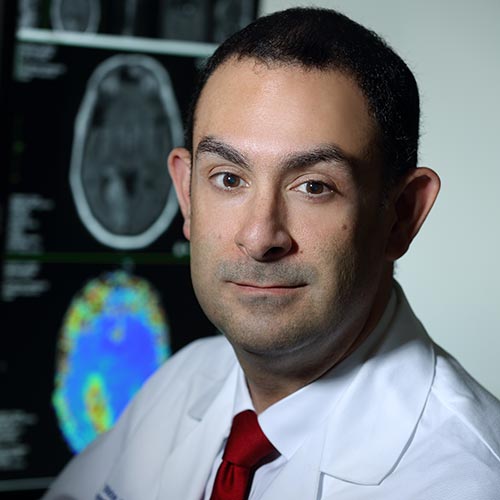
Victor C. Urrutia, M.D.
Victor Urrutia is a professor of neurology at the Johns Hopkins University School of Medicine. He serves as director of the Comprehensive Stroke Center at The Johns Hopkins Hospital and is a medical director with Johns Hopkins Medicine International. He is founder and director of the Global Center for Organized Stroke Care and Johns Hopkins Medicine International stroke program consulting.
Dr. Urrutia’s interests are acute treatment, stroke prevention and improving delivery of care. He led the organization of the Johns Hopkins Hospital Comprehensive Stroke Center, of which he has been the medical director since 2010, as well as the Stroke Prevention Clinic (2011). As the chair of the Stroke Quality Improvement Committee at the Maryland Institute of Emergency Medical Services and Systems, Dr. Urrutia oversaw implementation of interhospital transfer guidelines, adoption of the LAMS score by emergency medical services personnel and creation of a quality improvement process for interhospital transfers.
He has consulted on and conducted mock stroke center surveys that led to successful accreditation of primary and comprehensive stroke centers in New York, Utah and Maryland.
Internationally, Dr. Urrutia works with Johns Hopkins Medicine International as medical director for the affiliate in Panama, and has consulted on and led the organization of stroke programs in Colombia, Panama (both achieving Joint Commission International certification) and Bermuda; he is currently working on projects in Saudi Arabia and the United Arab Emirates. He led the creation of and manages the Bermuda Telestroke program, an international collaboration to provide acute stroke expertise to Bermuda.
Dr. Urrutia’s clinical trials include SAIL ON (NCT01643902), a trial of intravenous tPA for wake-up stroke up to 4.5 hours from awakening and OPTIMIST (NCT02039375), a novel clinical monitoring protocol for patients treated with intravenous alteplase, which is now launching into a multinational stepped wedge cluster randomized clinical trial, of which he is the deputy chair of the steering committee and principal investigator of the U.S. region. Dr. Urrutia led the Maryland Acute Stroke EMS Routing Pilot Study that resulted in a change in emergency medical services routing policy in Maryland, by which patients suspected of large artery occlusion are transported directly to hospitals capable of providing thrombectomy treatment.
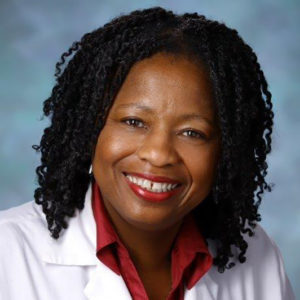
Brenda Johnson, D.N.P., C.R.N.P.-B.C.
Brenda Johnson is an acute neurovascular advanced nurse practitioner and is the assistant director of the Stroke Center at The Johns Hopkins Hospital. She earned her bachelor's degree from Auburn University, Alabama, her master's degree from Mercy College, New York, her nurse practitioner degree from Pace University, New York, and a doctorate degree in nursing practice from the University of Alabama in Birmingham. She obtained further specialized training by completing the Advance Practice Neurovascular Fellowship program in stroke at the Arizona State University.
Dr. Johnson is a member of many professional organizations, including the American Heart Association/American Stroke Association’s Fellowship Program, the Maryland State Quality Improvement Committee and the American Association of Neuroscience Nurses. Dr. Johnson has participated in poster presentations and lectures at national and international meetings. Her research interests include stroke prevention and health care disparities.
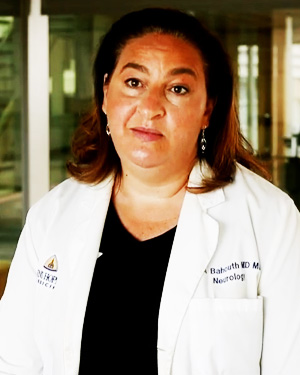
Mona Bahouth, M.D., Ph.D.
Mona Bahouth is an assistant professor of neurology and medical director of the brain rescue unit at The Johns Hopkins Hospital. She has experience in system science, outcomes research and the integration of clinically meaningful technologies into stroke care. She received her medical degree from the University of Maryland School of Medicine and neurology training at the Johns Hopkins University School of Medicine, where she completed her stroke fellowship. She is passionate about systems of stroke care and delivering the highest quality, high-value care to all patients who have had a stroke.
Dr. Bahouth has designed and led numerous acute stroke clinical trials. Her clinical research agenda focuses on understanding physiological readiness for activity after stroke, team science and techniques to improve recovery after stroke in the early treatment period. She has been funded by the National Institutes of Neurological Diseases, National Institutes of Aging, Fogarty International Center and the American Heart Association. Through innovative systems of care and research, we can do better to eliminate the mark of stroke.
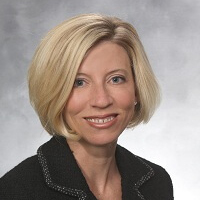
Nicole Rosson, M.H.A.
Director, Global Services
Nicole Rosson has 14 years of diverse experience within Johns Hopkins Medicine, including financial management, communications, physician and employee relations, human resources and clinical program development.
Ms. Rosson joined Johns Hopkins Medicine International in 2011 as a director. She works closely with the patient services division, the regional teams in global services and Johns Hopkins Medicine International senior leadership in the development and implementation of processes and projects to fulfill Johns Hopkins Medicine International’s organizational goals.
Before joining Johns Hopkins Medicine International, Ms. Rosson worked as a director in system planning and development in the office of the senior vice president for Johns Hopkins Medicine. In this role, she was tasked with developing and implementing growth and expansion strategies for Johns Hopkins Medicine’s hospital and ambulatory network. She was involved in negotiations and integration planning with various health care institutions, physician practices and other entities.
Ms. Rosson holds a bachelor’s degree in health science and policy from the University of Maryland, Baltimore County and a master’s degree in health administration from the Medical College of Virginia at Virginia Commonwealth University.
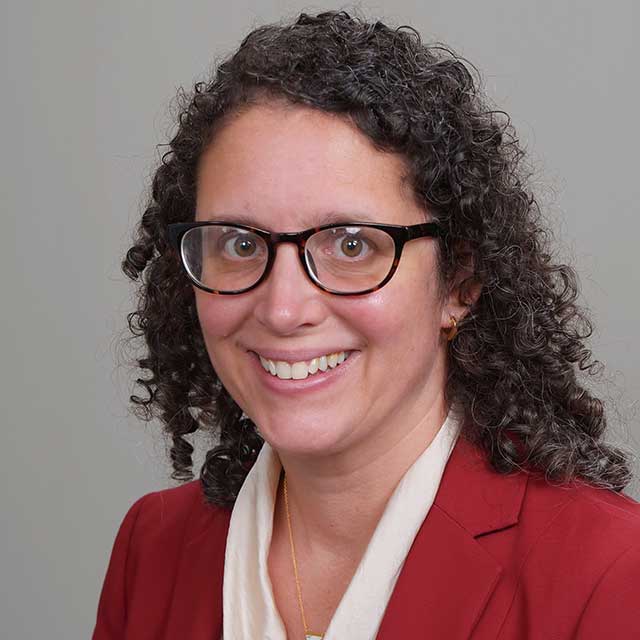
Elizabeth “Betsy” Zink, Ph.D., M.S.N., R.N.
Elizabeth Zink is a clinical nurse specialist in the neurocritical care unit at The Johns Hopkins Hospital. Dr. Zink has worked as a staff nurse, nurse practitioner and clinical nurse specialist in the areas of neurosciences and stroke, managing clinical care, research and education at the patient, staff and systems level. She has a track record of leadership in quality improvement efforts, organizing interprofessional teams and translation of evidence into nursing practice.
Dr. Zink’s research interests focus on applying biomarker measurement of early rehabilitation interventions in neurocritical care and stroke, exploring the effects of team performance on stroke patient outcomes and the use of high-frequency physiologic data to guide patient-centered, precision medicine-guided therapy in neurocritical care and stroke.
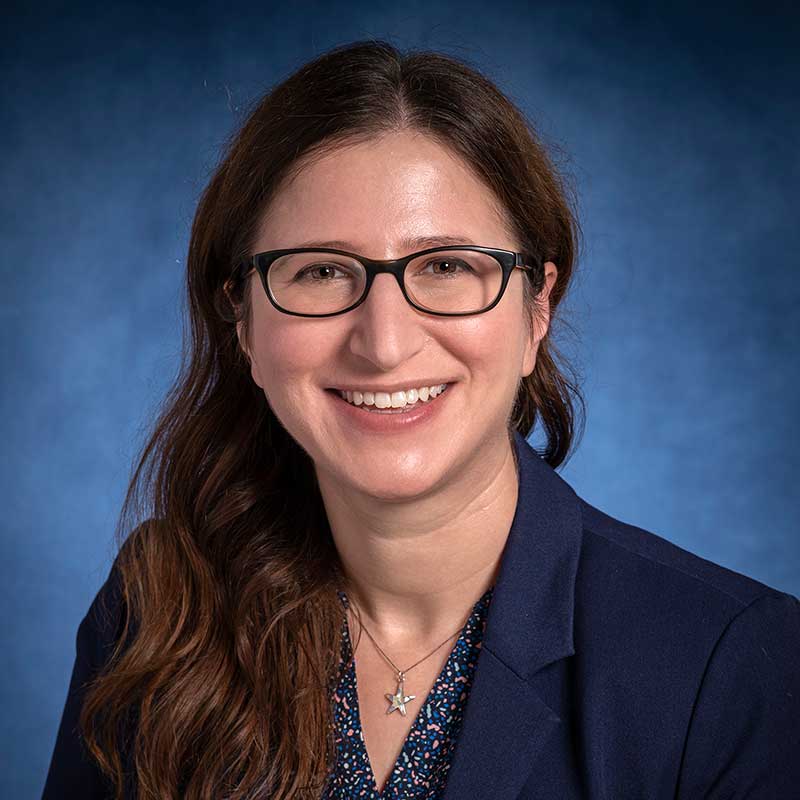
Lisa Klein, M.S.N., R.N.
Lisa Klein is an adult-gerontological clinical nurse specialist on the acute care and intermediate care neuroscience units of the Johns Hopkins Hospital Comprehensive Stroke Center. She earned her bachelor’s and master’s degrees in nursing from the Johns Hopkins University School of Nursing, and has been a certified neuroscience nurse since 2009. She has co-authored articles on the implementation of a stroke center in Panama and patient mobility. Ms. Klein is actively involved in the Johns Hopkins activity and mobility promotion program, and published an article on increasing patient mobility by using individualized patient mobility goals. Ms. Klein has taught and presented on nursing stroke care and management at The Johns Hopkins Hospital and at hospitals around the world.
